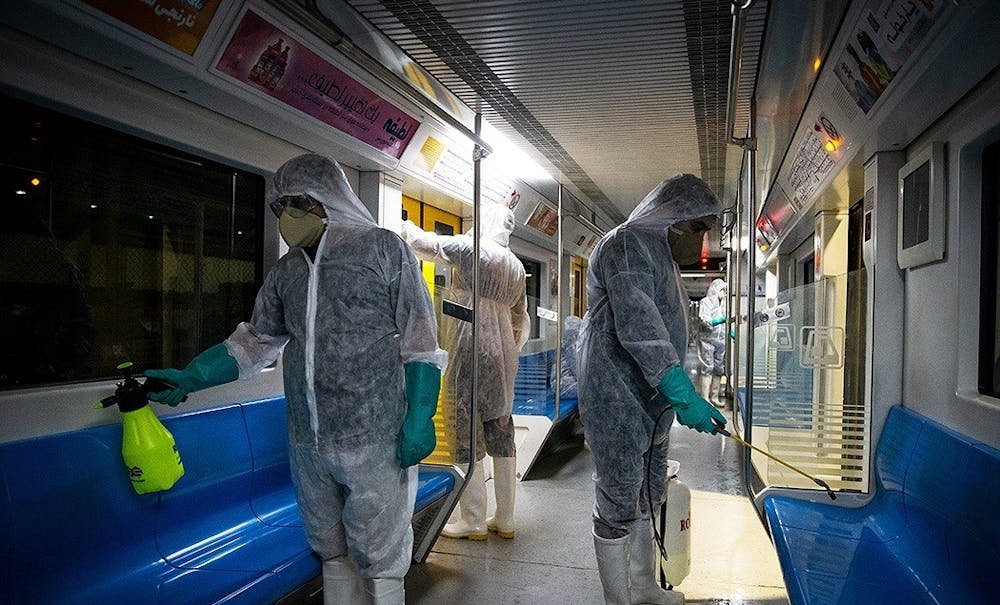In a recent column, Kate Lee ’23 rightly suggests that we as individuals should do everything in our power to protect ourselves collectively from the pandemic that has thrown an entire globe off-kilter. Centering her analysis on the United States, she advocates for a moral reset of sorts, in which we evolve beyond the narrowness of American individualism. She urges that a communal, utilitarian mentality should take the place of mere, unenlightened self-interest. From the outset, this is a commendable sentiment.
Yet, Lee also draws a hard line between communal thinking and communist living, citing the Soviet Union as a failed experiment. Although this characterization is dubious at best, this is not the main issue. The problem with communalism, as it is formulated by Lee, is that it focuses more on how people think than on their actual conditions of life. In her imagination, we must rely on one another on the basis of citizenship. This fact ignores how class differences come into play amidst the calls for universalization.
Lee’s column is useful in many ways, except for its failure to acknowledge that for many, fighting the virus is not simple as just going home and keeping to themselves. Such a prescription has higher consequences for those of less affluent socioeconomic backgrounds. Perhaps most of the people reading this can go home, fulfilling their obligations according to a communalist moral framework. The flaw of this advice can be seen in that it cannot be universalized for those who need to keep working.
The United States has demonstrated itself to be unequipped to deal with the virus. As Lee points out, this unpreparedness is exacerbated by dangerous behavior perpetrated by college students and the President alike. She also provides examples of corporate abuses, but these are of an entirely separate category. In the case of unruly youngsters and, if we were unreasonably optimistic, even the President himself, we can appeal to the state to enforce compliance with social distancing guidelines. Giant employers such as Amazon, however, have no immediate reason to respect such quaint restrictions; they are here not to save lives and to serve the public, but to accumulate profits. The workers fighting tirelessly for their own rights, along with those defending them, are practicing a far more crucial, profound, and courageous form of communalism than we can imagine.
In the wake of these protests and incidents of unsafe working conditions, can the state bring corporations to heel? Perhaps, if not for the fact that America governs on behalf of the class most benefiting from capitalism. The American government’s response to the virus is one piece of horrifying evidence of this fundamental allegiance. In times of crisis such as the 2008 economic crash, the state has the tendency to support the most wealthy people and corporations. This support only further entrenches the alliance between the capitalist class and the state.
As long as we respond to this shameless display with a focus on individual behavior and a commitment to the ideology of patriotic togetherness, such exhibitions will persist unabated. Even in acknowledging the absence of universal healthcare and the mistreatment of workers by companies, what reason is there for capitalists to actually think twice, or to flinch, or even blush?
The critique that Lee levels at individualistic thinking is an astute one; it is long past time that a higher sensibility be cultivated. Yet, the reality of the situation is harsher than how Lee imagines it.
She recommends that we entrust our well-being to an ostensibly well-meaning and equalizing government, with its cameras and systems of regimentation. But this is the same government that exiled Edward Snowden and murdered Fred Hampton; such is the price of inconveniencing capital.

What can we expect will be the result when people finally get tired of being denied healthcare, and when the working class in particular realizes its social significance? Responses will be less than charitable, which is why in spite of a venerable moral guidance system, communalism falls flat; we must identify our future with class, not with our nation. We may all be susceptible to the virus, but we are not, as the saying goes, “all in this together.”
Braden Flax is a junior from Merrick, N.Y. He can be reached at bflax@princeton.edu.









